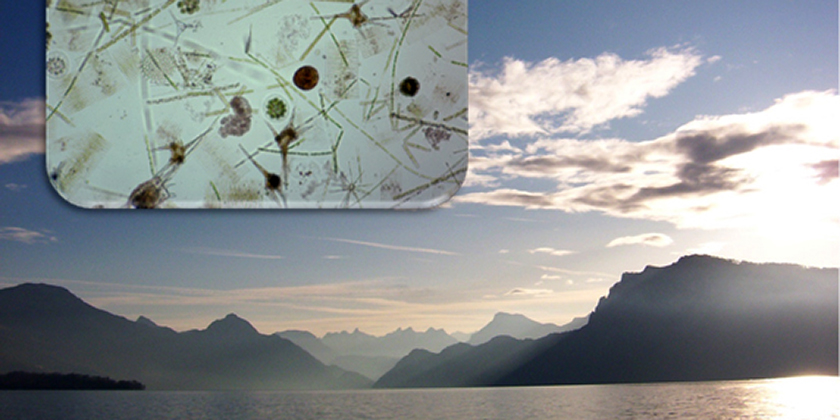Department Aquatic Ecology
Phytoplankton Ecology
Our research aims at understanding the mechanisms that maintain biodiversity in planktonic ecosystems, and the conditions that (sometimes) favour the dominance of a single taxon (or genotype). Specifically, we focus on the abiotic and biotic controls of phytoplankton community dynamics in lakes, and the factors that trigger toxic cyanobacterial blooms. We study the feedbacks between plankton phenotypic or genetic changes, population responses, species interactions and food-web dynamics in lakes affected by climate warming, eutrophication and pollution.
We approach the topic from a trait-based perspective to mechanistically link individual and population level responses to community and ecosystem level processes. We aim at mapping species interactions in complex and interconnected ecosystems, at inferring phytoplankton responses at different scales (from local to regional, from hours to decades), and at developing data-driven models to forecast changes in plankton biodiversity and aquatic ecosystem services (e.g. cyanobacterial blooms and water quality).
We study plankton communities in their natural environment using high frequency automated monitoring, historical series of lake monitoring data, DNA meta-barcoding, and mesocosm experiments. We continuously explore, develop and test new tools and approaches for monitoring plankton community dynamics, biodiversity and water quality.
Some current research interests include:
- Relative importance of abiotic (resource supply, water physics) and biotic (competition, facilitation, trophic interactions) mechanisms driving phytoplankton growth rates
- Meta-analyses of lake monitoring data to understand the effects of warming and eutrophication on plankton communities
- Mechanisms leading to (toxic) cyanobacterial blooms and their consequences for food-web and ecosystem functioning
- Data analysis methods to infer divers and responses in complex ecological datasets
- Development of in-situ or portable monitoring tools for plankton
- Forecasting of biodiversity change
For more specific information browse the projects below or see our publication list on GoogleScholar.
Join our group!
M.Sc. students, bachelor students and interns are always welcome. For further information please contact Dr Francesco Pomati.
















